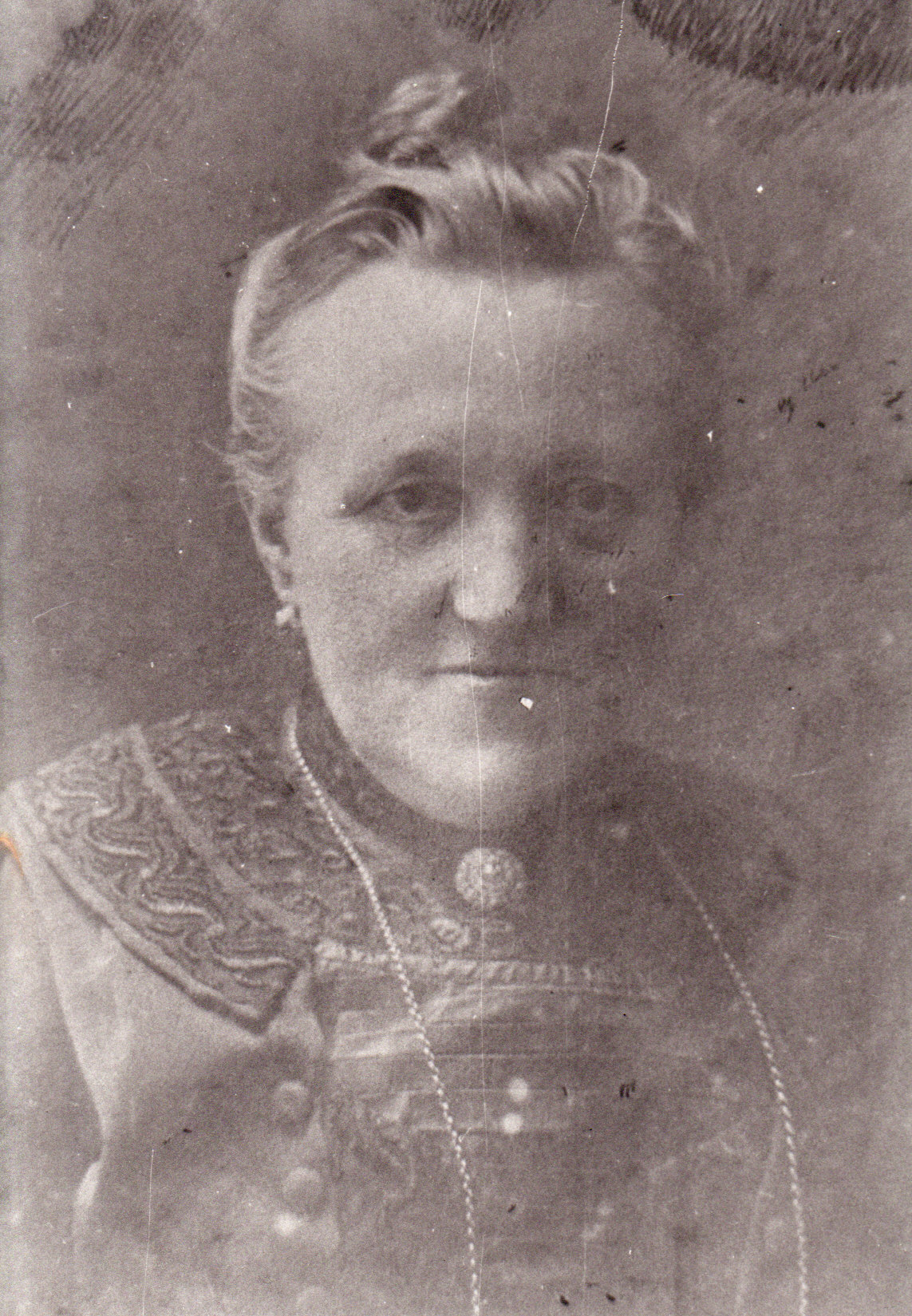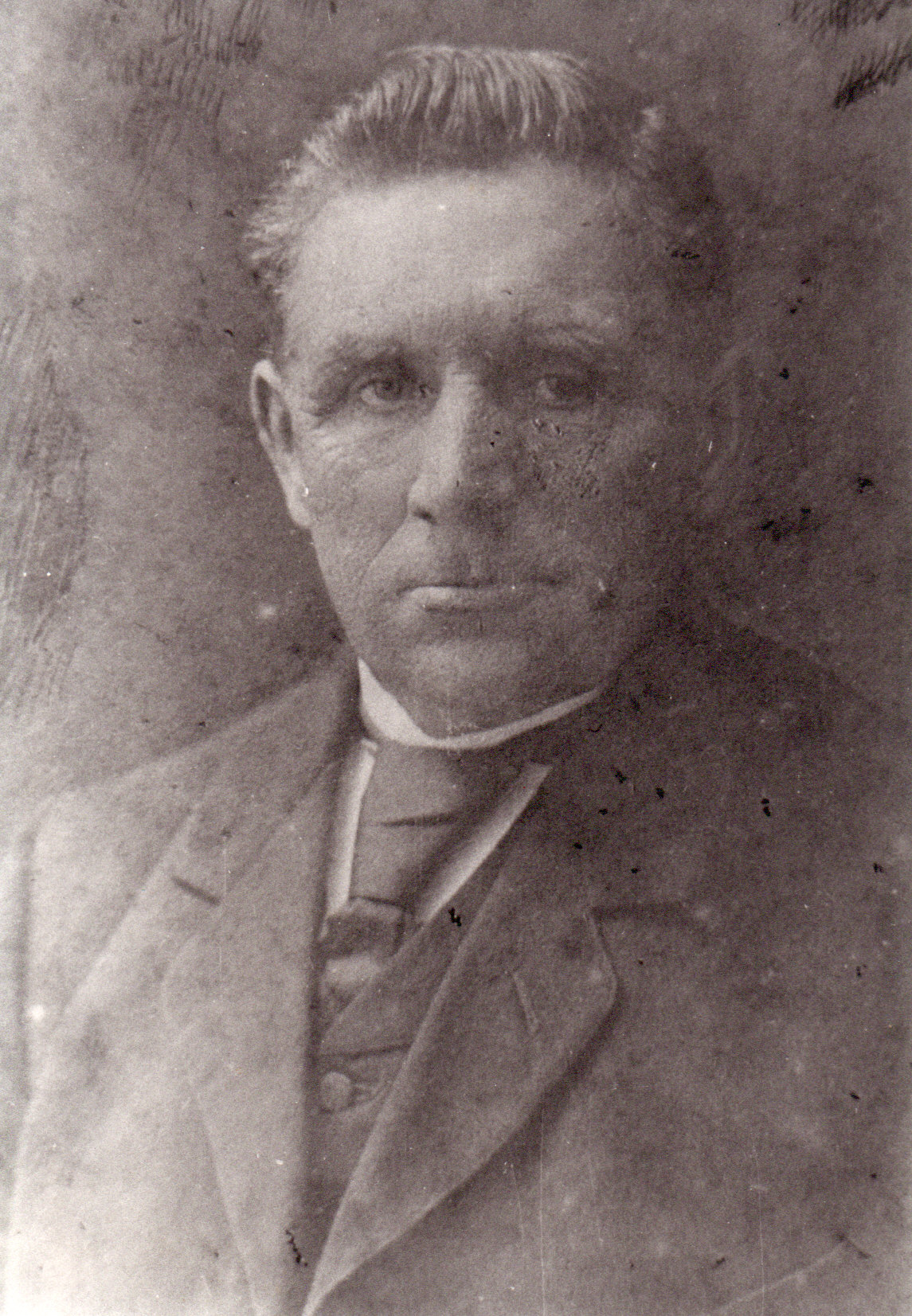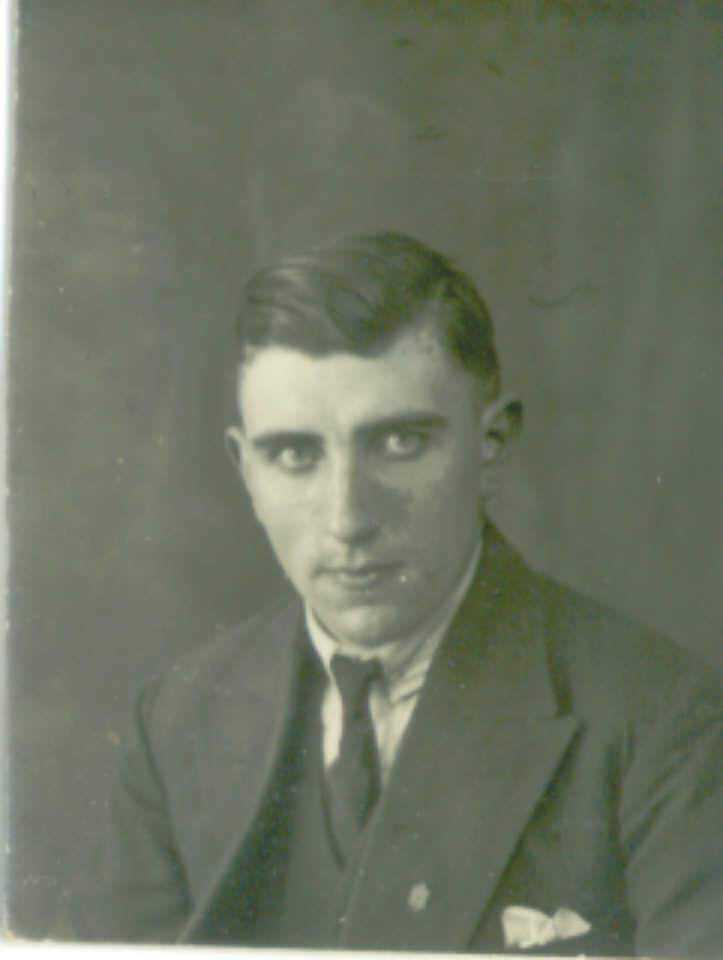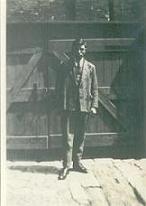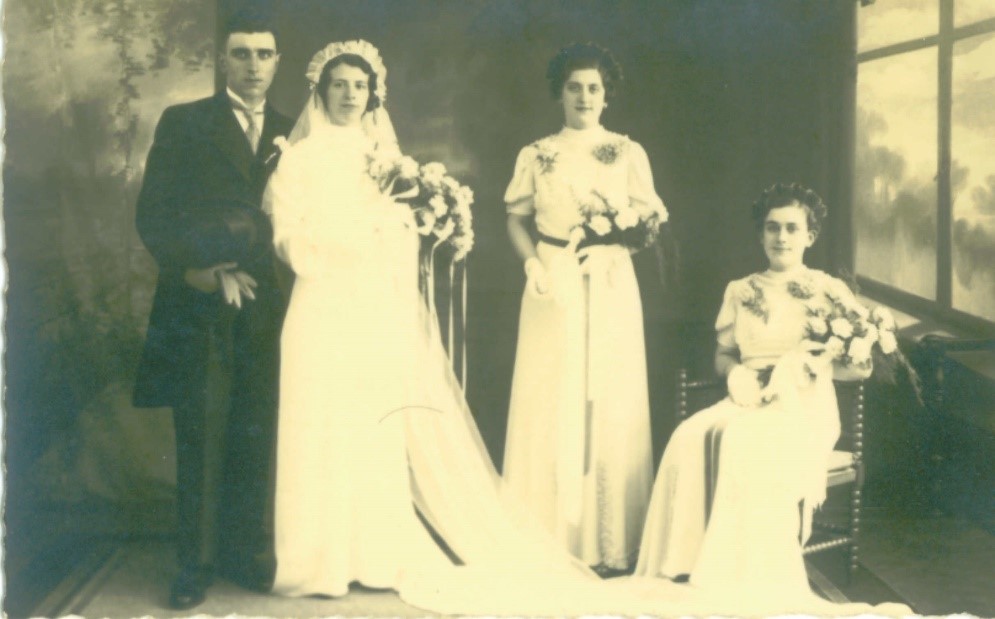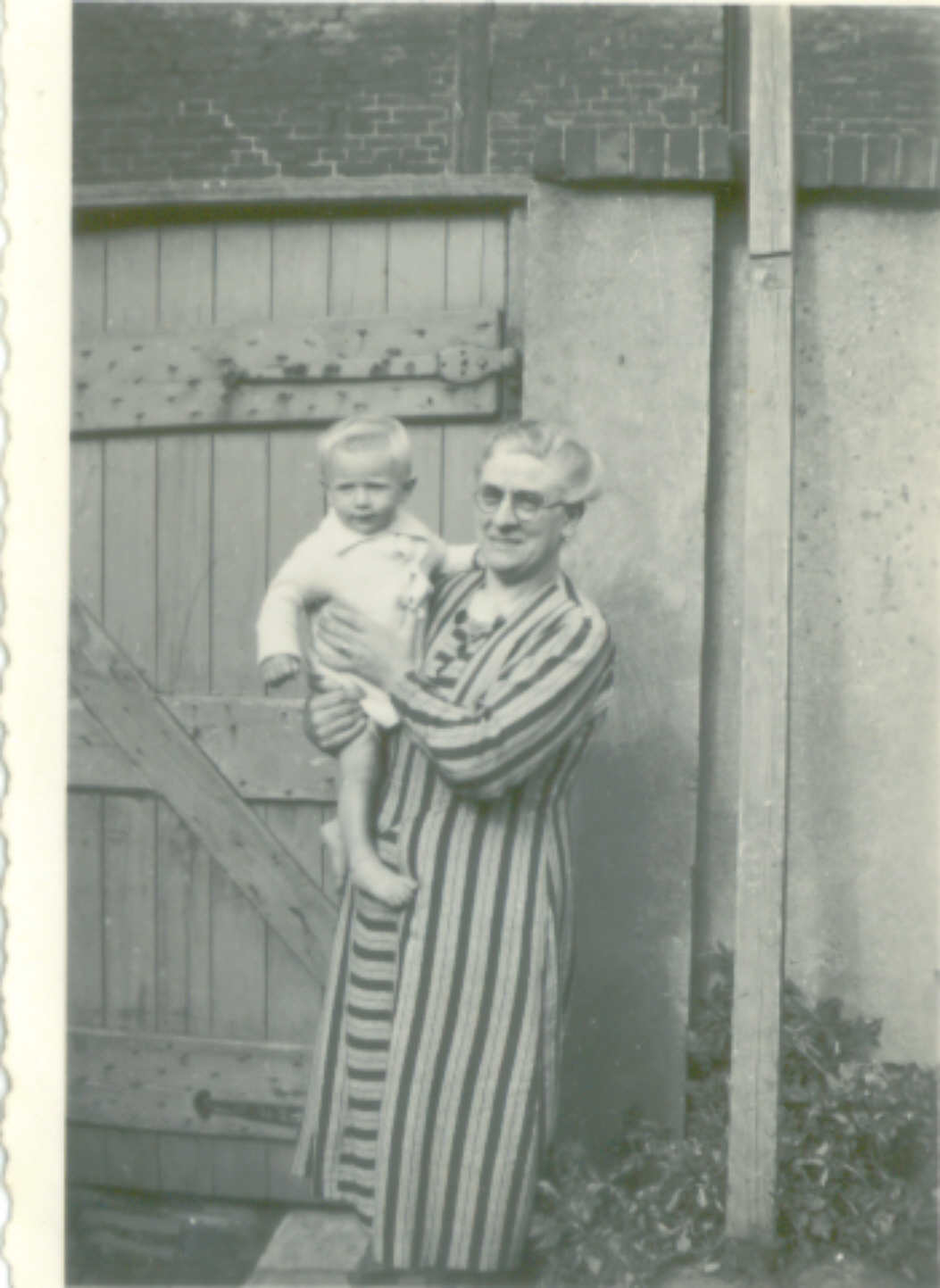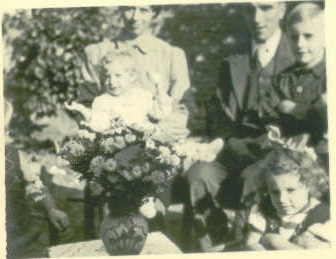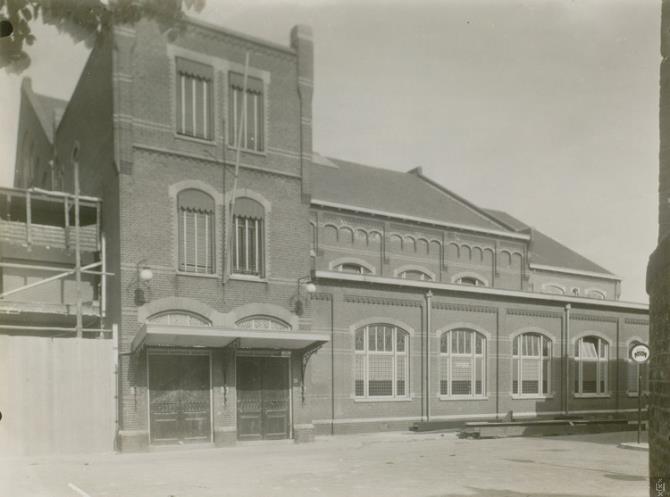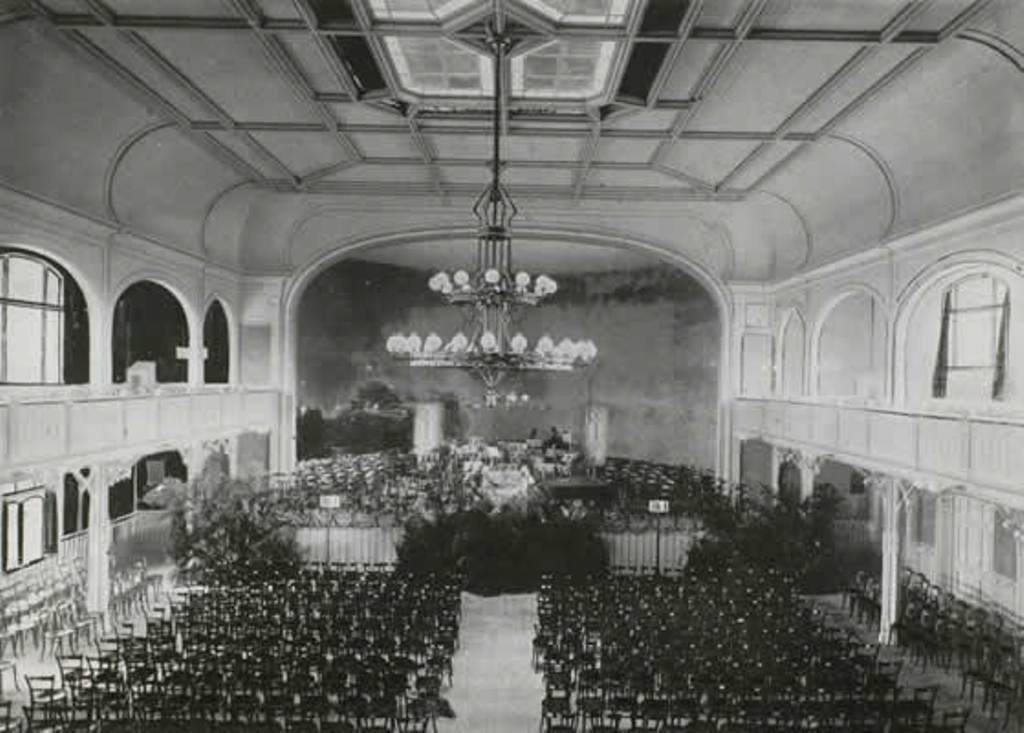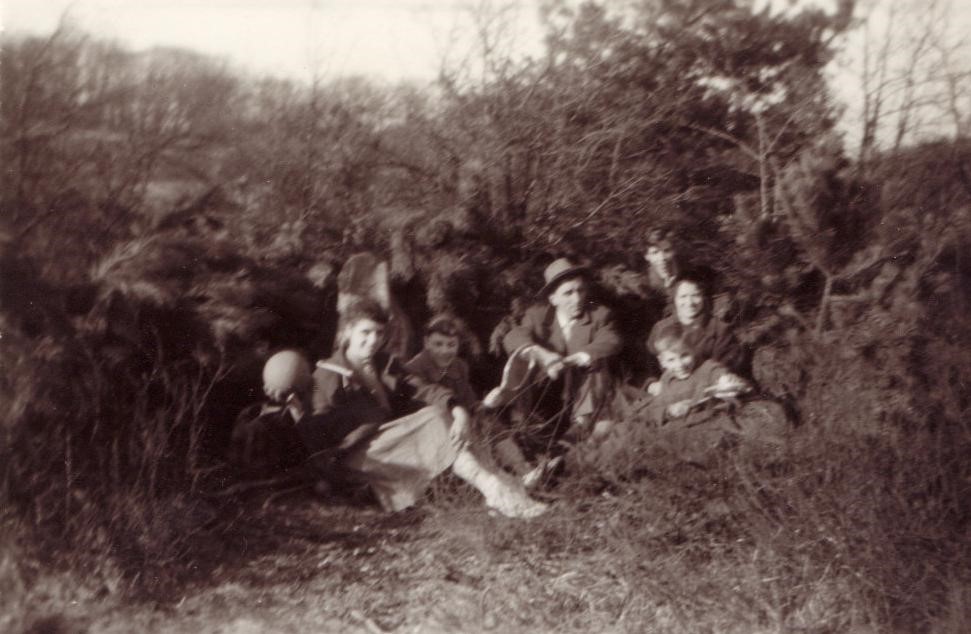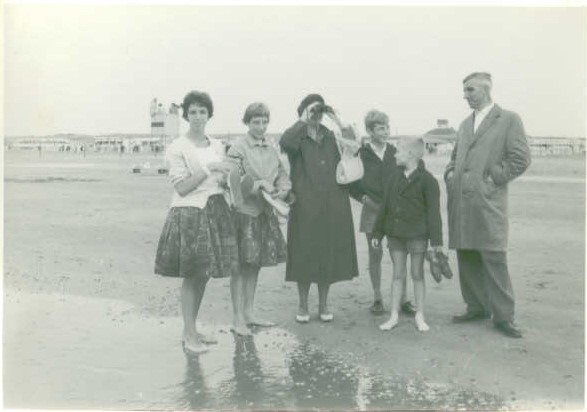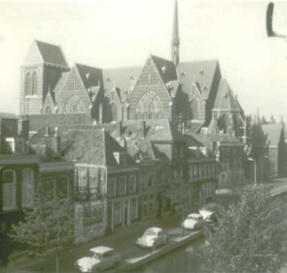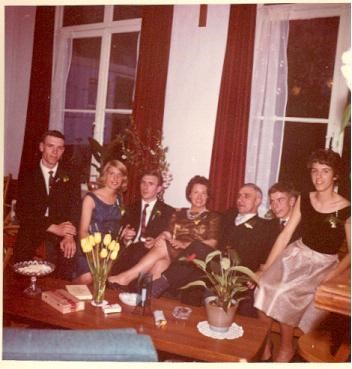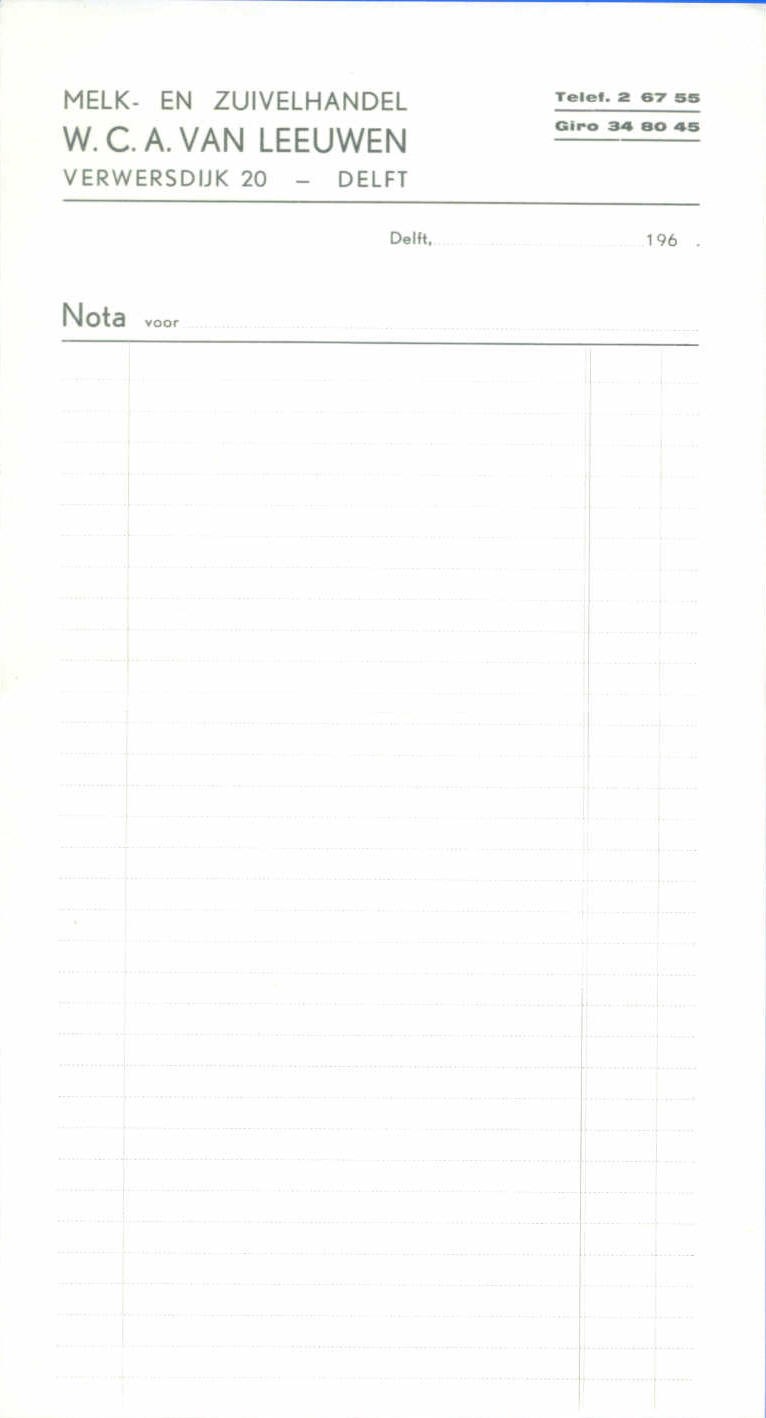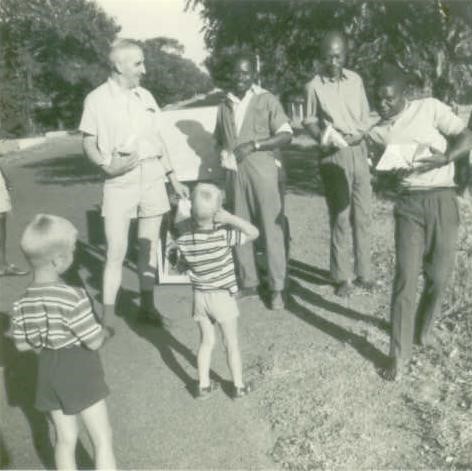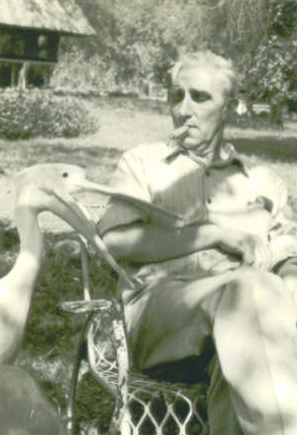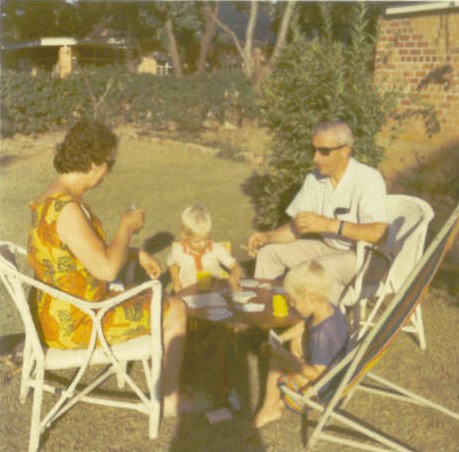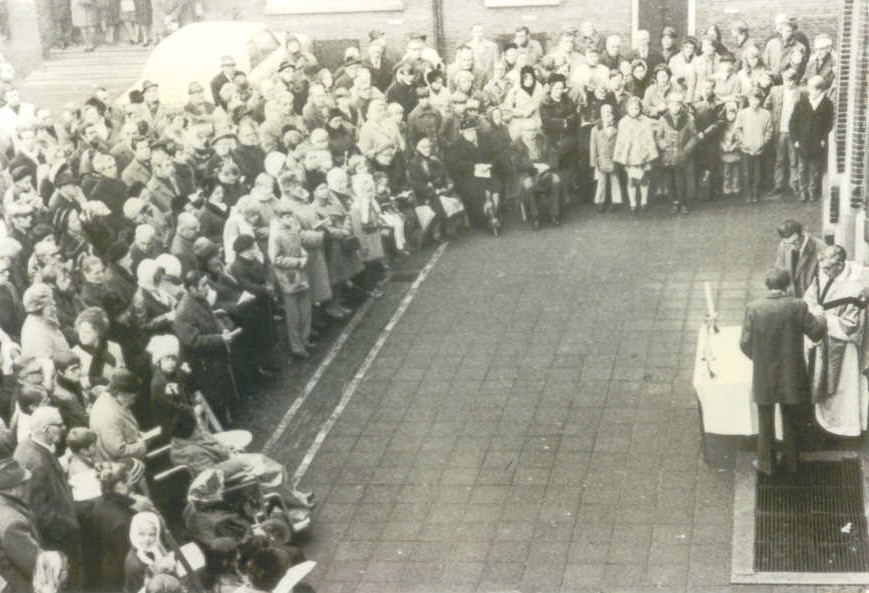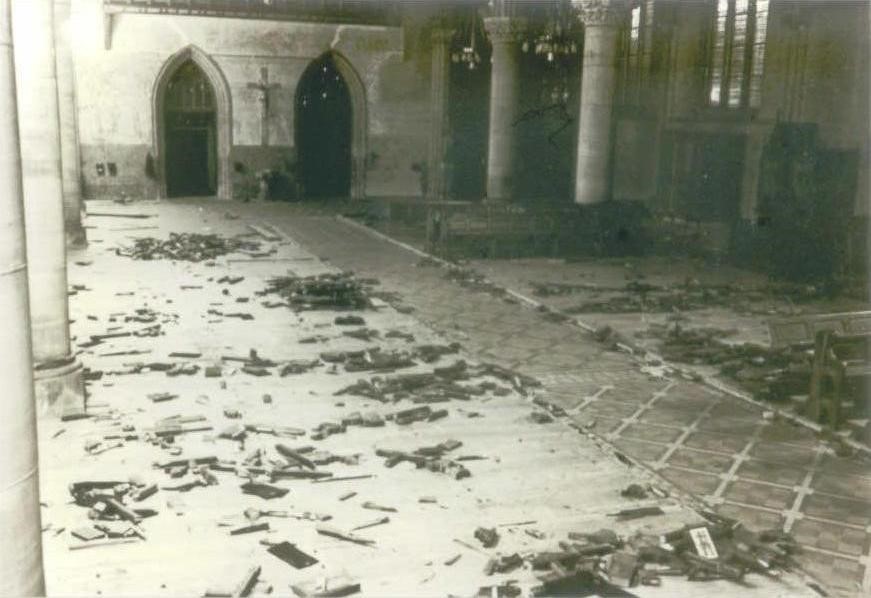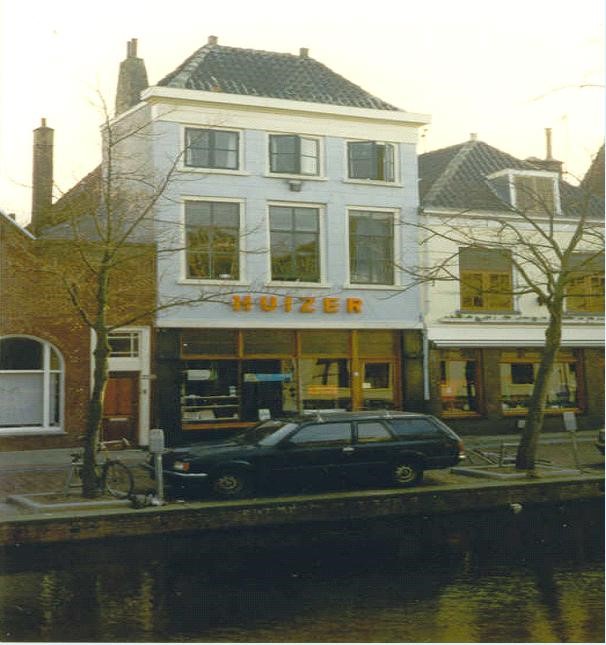Leeuwendeel
"Van Leeuwen" in de familie? / "Van Leeuwen" in the family?
Wim van Leeuwen 1913-1973
On 22 April 1913, at "het Achterom 143" in Delft Willebrordus Cornelis Anthonius Franciscus (Wim) van Leeuwen was born as the first child of Cornelis Johannes Josephus van Leeuwen and Maria Catharina (Marie) Bol. Wim is named after the father of his father. These after all is also called Willebrordus. His second name (Cornelis) is his father's name, but also that of the father of his father's father (his grandfather). Where the third and fourth name (Anthonius Franciscus) come from, I can not resolve. In that same year, Queen Wilhelmina opens "het Vredespaleis" in The Hague.
He grew up in a turbulent time. In 1914 the First World War breaks out. Because of his young age he will get little from it.
In 1917, be equated public and private schools. This will be the basis for Wim unconsciously for the hospitality he will have later in life. It doesn't matter to him what religion people have. He sells to anyone. Wim survived the Spanish flu that 27,000 people in a few months in 1918 takes the life. The last quarter of that year death sometimes entire families. One of the 250 Dutch people is a victim of the flu, which has subsided in the spring of 1919. Whether Wim there has been troubled by himself is not known to me.
On 5 July 1922 women in the Netherlands are for the first time votes in the general elections. Something that was already possible in Finland since 1906. Wim, has undoubtedly no opinion yet on it because his young age.
At that time large families are quite common. Wim has two sisters and three brothers. Unfortunately two died very young age. As a young boy Wim sleeps together with his younger brother Gerard in a bedstead.
As soon as Wim can help in the company of his father, he does. His father is a dairy vendor. This is the job he keeps doing all his life. He is so busy with that, he has very little time to follow the news. So don't think about sportsmatches. The business will go before. However, he decides to go to dance class. Here he met his future wife. He is also with the party when there is a celebration nationwide. For example, in celebratory events of the royal family.
Wim marries Ali
On 5 May 1939 it is so far. In Delft, he married for the civil status in marriage with Alida Maria (Ali) Gerbrands (born 26 October 1912 in Delft), daughter of Petrus Johannes (Piet) Gerbrands and Catharina Aplonia van der Hoeven.
On May 9, 1939 they married for the Roman Catholic Church. After getting married, Wim and Ali live on Verwersdijk 10 in Delft and have their own dairy shop there.
The second World War A year later, on 10 May 1940, Germany invade Netherland with codename "Fall Gelb". Thereby Netherland also becomes involved in The second World War.
In spite of absconding, he gets a son (Kees) on 6 August 1941 in a very small house. The house is so small that the cradle of Kees must be in the bedroom of Wim and Ali.
The family moves to Rietveld 30b at 10 December 1945. Today this is called street Pluympot.
It's 1 January 1946 will be unveiled the first computer. The computer was developed because there is a need for a machine who could make quick calculations. The machine calculates, within 30 seconds, the trajectory of a projectile. Human takes about 20 hours.
The world is being shaken on July 5, 1946 with a new garment, she was named after the Bikini Islands in the Pacific. The bikini is a very sexy garment that is worn during a beauty contest.
24 November 1946 is born another daughter (Tineke / Tiny).
Back to the Verwersdijk After about a year at the Rietveld have lived, they move back to the Verwersdijk on fth of December of the year 1946, but this time at number 20. This house is nice for many children from the family and the neighborhood to come to play. It sometimes seems like a playground. Yet they are not wealthy. For 14 guilders a week they can rent the house of the Kouwenhoven family. It just works. The building is so large that rooms can be rented. This does Wim and Ali, so they have an extra money. Partly because of this, they can keep the head above water.
On 4 September 1948, Queen Wilhelmina takes away the throne. Her daughter Juliana will be crowned two days later. From that moment there will be many changes take place in the Netherlands. Indonesia and Suriname will be given independence.
To increase security in Europe, NATO is founded on 4 April 1949.
Wim regularly goes with the family and with a horse-drawn carriage towards Scheveningen. This is something that Wim always enjoys. On the way, Wim always allows the horse to rest and graze for a while. But one day riders pass by and Wims horse goes after them. Only after a long time the horse is caught.
In 1950 for a liter of milk you pay ƒ0.24 .
By a raging storm, on February 1, 1953, the water breaks through the dikes of the province of Zeeland and Zuid-Holland. Large parts of Zeeland are under water. After a stormy night with wind speeds of more than 170 kilometers per hour, on Sunday morning, 1 February the dikes in the south of the Netherlands go on different places and flow large parts of Zeeland underwater. Through the flood (tidal) almost 200,000 hectares of polderland flows under water and more than 300,000 people are at risk. The total number of deaths will end up in 1835, there are more than 47,000 homes damaged or destroyed. Wims home also has damage. But they have recovered quickly.
Doelen Kino The house and surrounding buildings only suffer from heat damage, but the Doelen-Kino will have to be completely rebuilt. The probable cause of the fire is short circuit.
Meijendel in Wassenaar The left photo was made in Wassenaar in Meijendel. It is March 1958. At that time it is customary to go on a road trip. When the family goes to the beach, they make piles of sandwiches in the morning and take a lot of drinks with them. Wim senior is always sleeping on the beach, he is often tired. He does it for the family. No drinks are bought on the beach, there is no money for that and that is not the custom either. Sometimes the children get an ice cream at the end of the day. They often blow hard and put on a windshield, which is always a hassle. But they always had a lot of fun.
Military service of Kees So Kees have to fulfill his military service in 1959. Kees has no problem here, but rather has something to do. It's sad that it soon turns out that he's indispensable at home. The servant who is employed is too expensive and not reliable. Kees arrives at the weekend. He can, as far as possible, help to get back on track. From the moment Kees is in military service, the family has to pay more than revenue. The tax inspector has also seen that this is not true and meets the family. Ali has to pay the tax on a regular basis. Therefore she has to cross the Markt square to the Molslaan. But now she can also reclaim them regularly. Therefore she has back and forth with a lot of money. Because Kees's indispensability is demonstrable, he can return early from the military service. In total, he spent six months in military service. That has been far too long.
One liter of milk costs in 1960 ƒ0,40.
The church Wim is always busy a lot with the church. From 1960, the St.Hippolytusk church is restored. He is always giving money to restore the church and to save for demolition. Also, of the small amount of money there is, because the Milky Way does not raise much money, he gives. The love for this church goes so far that Wim even buys shares of the church. With other actions he also supports the church. At Christmas, the church always loves to give families who do not have the money to give Christmas packages. Wim also participates, he supplies Christmas packages to the church. These are then delivered by parishes to the people at home. In the month of May, he ensures that the chapel is always decorated with lilacs. Flowers, which bloom in this month in a tree in the garden. He then goes to church early on Saturday evening or Sunday morning, so the chapel looks festive on Sunday.
On 28 November 1962, Princess Wilhelmina died. (Born 31 August 1880) She was Queen of the Netherlands from 1898 to 1948. She gets a solemn burial in the family tomb in the Nieuwe Kerk in Delft.
From 1934, sales tax is levied in the Netherlands. In 1969, converted by order of the European Community that sales tax in the tax known to us. (Value Added Tax) The big difference is that tax is no longer being charged on sales but about the product being sold. The introduction of this law is accompanied by many protests. Especially retail expects a lot of administrative red tape. Furthermore, it is expected that life is expensive, because the consumer is the last link. Wim also has to adjust his prices.
In the 60s, Wim used a notepad, which shows a sheet here. When you take look at the phone number (2 67 55), this is the number that Ali still uses until very high age. The number is in the course of time a comprehensive up to 015 21 2 67 55.
On Sunday 20 July 1969, the whole world listen and watch radio and television, because that day, the Apollo 11 capsule (the Eagle) landed on the moon, following the Russian spacecraft Luna 2 (1959). Something that seems to be almost impossible until then has been accomplished.
The "Melk-Unie" Meanwhile the "Melk Unie" (means: Milk Union) has taken over the business. Initially, Wim refuses to work for this society, and goes to another company to do some carrying jobs. After a while, he decided to work at the "Melk-Unie". He will have his own district in The Hague. He is also at ambassadors across the floor at that time. After being there for the first time, he says at home: "Ambassadors are also ordinary people."
Late 60s begins the discussion that two churches in the center of Delft is too much, because the number of Catholics go to church less and less. Wim regularly attends meetings to see how the church can stay open.
In 1970, one liter of milk costs ƒ0,59. |
||||||||||||||||||||||||||||
Zambia In May 1970 Wim en Ali goos to Zambia, where Tineke lives with her family for already two year. It is a gift from Tineke for the 30th marriage of Wim and Ali. It means a lot for them. For the first time in an airplane and then to an English speaking country. The country of the Africans. They have the thoughts: "Only the missionaries go to it. Now we go too." For all that pictures, slides and letters (Tineke writes home every week), it is very difficult to have a view of how Tineke and the family live in Zambia. There is a supermarket and a tarmac street, that's for Wim hard to imagine. He's totally surprised that Tineke has an ordinary house with a garden in an ordinary street. The people are really really black.
The waterfalls are beautiful. Wim can easily sit on a stone and just wonder how that water mass continues to fall. With the setting sun he finds it scary with all those strange noises. Monkeys are already untrusted during the day, but in the evening you should definitely stay away from them. So they return to their huts very soon. These cabins are located right on the water of the Zambesi River. In the river there are crocodiles, and they can sometimes wanting to eat a human race. With that thought, Wim does not feel at ease.
From the heat and the stress, Wim gets very thick feet. The doctor's advice is to return. That seems good advice because they are not home or his feet are normal again. One advantage is that home, even if it is Africa, is in the inhabited world.
|
||||||||||||||||||||||||||||
|
|
Later the committee managed to arrange it so that in the Stads Doelen, where Wim always brings milk and milk products, Holy Masses can be dedicated in the auditorium.
Plans are being made to crack the church. Many discussions are held about how the church can be opened again. The idea is that the church is boarded up too well from the inside, making breaking open difficult.
One time son Wim goes to church with another altar boy because he knows which hatch is not closed properly. Walking into the church, they meet the last pastor who sends them outside.
After that the action committee rents the vacant chapel on the corner of Nieuwstraat / Oude Delft. This is being refurbished and the St.Hippolytus Chapel Foundation starts here. Wim and Ali go to church here every week. Mr. Rigters plays an important role for a long time in the further development of the St. Hippolytus Chapel.
|
|
Verwersdijk 20 (many years later) |
March 1972 Wim and Ali move to Van der Heimstraat 9. Like all previous houses, this one is also in Delft. The previous house, which is much larger, is sold at a considerable profit to a transmission belt factory. From that moment on, things are going very well financially. Unfortunately, Wim was not able to enjoy this for long, because he becomes seriously ill.
He will experience the first car-free Sunday, which takes place in the Netherlands on November 4, 1973. This was previously determined by the Dutch government headed by Prime Minister Den Uyl.
The need for the Car Free Sunday is caused by the oil producing countries of the Middle East, no oil to supply include Netherlands. These countries provide a large part of the oil reserves in the Netherlands. The boycott is brought about by the Dutch position on Israel.
As a result of this boycott, a kind of distribution system is being set up whereby every car owner can get petrol coupons. The only vehicles that are allowed to enter the road are the cars of special working groups such as ambulances and police. 6 more of these days will follow. Despite the great inconvenience during these days, the days are absolutely not experienced as difficult by the Dutch population.
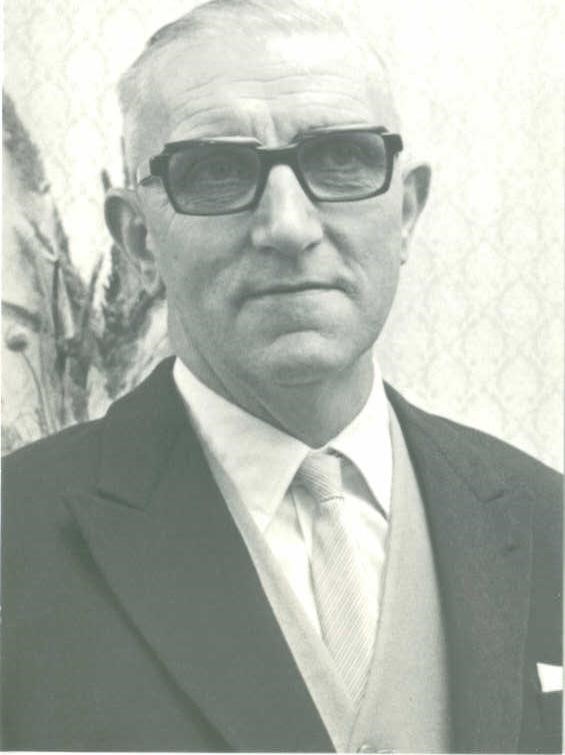 |
Wim bestows on his sickbed undoubtedly little attention to it.
After being ill for about six months, Wim died on November 5, 1973. Wim is buried from the St. Hippolytus Chapel.
